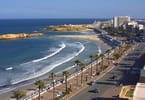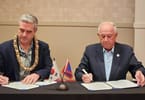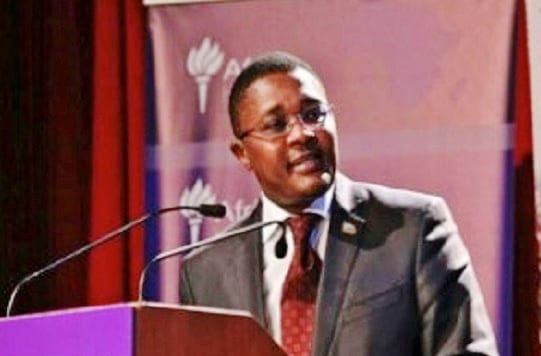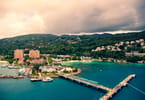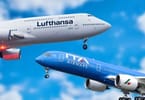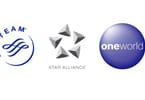Nok Air seems to finally have found its position and is ready to cooperate with its main shareholder, Thai Airways, Nok Air’s CEO, Patee Sarasin, told eTN in an exclusive interview.
Imagine an airline being formed for the strategic purpose of countering the rise of low-cost airline competition. This was the purpose of Thai Airways when it launched its low-cost subsidiary, Nok Air, in 2005. However, Nok Air never served really this purpose, being over the last three years at odds with its main shareholder. Until this summer, when finally a new agreement signed between Nok Air and Thai Airways paved the way for renewed cooperation and common marketing goals.
eTN: How do you explain that it was so difficult for Nok Air to work with its main share holder Thai Airways?
Patee Sarasin: We have definitely buried the hatchet with Thai Airways as we are not in position to fight in the current environment. It is true that we had difficulties in the past to cooperate as we lacked a common vision. Thai Airways is an airline which is a State company and where politics play an important role. The problem is that we had to discuss all the time with new partners and it is then hard to keep up the same policy. But with the arrival of Wallop Bhukkanasut, chairman of the executive board committee, we have now a strong stable partner to discuss and we agreed on many issues.
eTN: Does it mean that Thai Airways and Nok Air will finally cooperate and have a common strategy?
Sarasin: We will definitely work together and are putting a place a team looking at common marketing strategy. We do not compete but better complement each other, especially as we fly from Bangkok Don Muang airport, while Thai Airways [TG] flies all its domestic routes from Suvarnabhumi airport. We are for example very strong in markets such as Nakhon Si Tammarat or Trang that are not served by Thai Airways. We believe then that TG helps us to sell Nok Air flights better abroad. We envision to join also TG frequent flyer program Royal Orchid Plus –most probably by October-as well as Royal Orchid Holidays. We look indeed to orientate our relation in the same way than Jetstar with Qantas Airways.
eTN: How would you summarize your wishes for a better cooperation with Thai Airways?
Sarasin: Simply resumed, I emphasize our cooperation with the following tasks: schedule coordination; distribution streamlining; loyalty program synergies; common package holidays; common marketing. I believe that we can achieve a lot through small objectives that both teams can easier reached.
eTN: You used to fly international destinations. Is it in your plan and how will you coordinate with Thai Airways?
Sarasin: Prior to our restructuring, we opened flights to Bangalore and Hanoi. Despite high load factors, we lost a lot of money as we did not anticipate fuel price increase then. We then carried passengers who paid extremely low promotional fares which absolutely did not balance the cost per seat. However, I guess that we could fly again internationally by 2011. We will then talk to Thai Airways and see the destinations that we could serve. We could also fly more international destinations out of Phuket or Chiang Mai. They are plenty of opportunities in Asia as many cities still lack international connections…
eTN: You restructured Nok Air dramatically in 2008, how does the airline look today?
Sarasin: The fuel price increase forced us to a dramatic reduction in our activity in early 2008 but I must confess that we learnt a lot through this restructuring. We are far more careful today in our market approach. We laid-off 1,000 employees, reduced our fleet from 6 to 3 Boeing 737-400 and cut the number of flights. We have since been very profitable as we increase our aircraft use from 9 to 12.7 hours. We achieve on average a load factor despite the fact that we are not offering the cheapest fares in the market. We are profitable again and succeed to make a profit of Baht 160 million [US$ 4.7 million] during the first six months. We should then carry more than two million passengers this year.
eTN: Are you looking to expand again?
Sarasin: We are adding three new aircraft and look ideally for a fleet of 10 Boeing 737-400 in the future. In terms of network expansion, we will add more frequencies to Chiang Mai but also plan to open routes to Chiang Rai and Surat Thani. We will for the time being remain focused on domestic operations as Thailand has a real domestic air market.
ĐIỀU NÊN rút ra từ bài viết này:
- The fuel price increase forced us to a dramatic reduction in our activity in early 2008 but I must confess that we learnt a lot through this restructuring.
- We have definitely buried the hatchet with Thai Airways as we are not in position to fight in the current environment.
- We achieve on average a load factor despite the fact that we are not offering the cheapest fares in the market.






